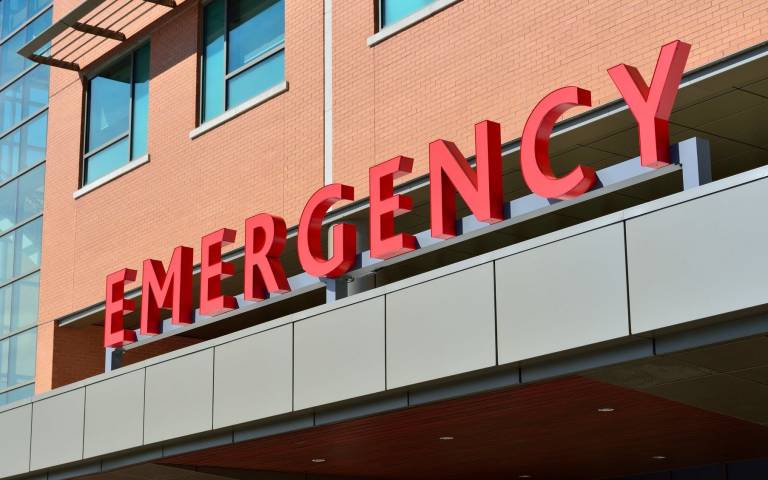COVID-19: Avoiding hospital caused heart disease death rise
21 December 2020
Lower rates of hospital attendance for urgent heart problems during the initial phase of the COVID-19 pandemic may have contributed to avoidable deaths in England, finds a new study led by UCL researchers.

In the wake of the coronavirus pandemic, a marked decline* in patient visits to Emergency Departments (EDs) was observed in England and the US, including for people with heart problems.
In this study, published online in the journal Circulation cardiovascular quality and outcomes, researchers at UCL’s Institute of Health Informatics estimated the effect of reduced ED visits for suspected cardiac disease on non-COVID-19 related cardiac mortality in England.
To quantify the number of excess deaths due to cardiac disease, the team used mortality counts from the Office of National Statistics (ONS) for England. To quantify the change in daily ED visits, researchers used data from the Public Health England (PHE) Emergency Department Syndromic Surveillance System (EDSSS): a network of sentinel EDs across England. To explore how the reduction in ED visits may have affected cardiac mortality, researchers implemented causal inference methodology.
Lead author Dr Michail Katsoulis (UCL Institute of Health Informatics) said: “During the initial phase of the pandemic, between March 12** and April 15, 2020, there was an estimated fewer ED visits of 2,750 per week for suspected cardiac disease; this is around a 35% decrease compared to the pre-pandemic period this year.
“Our analysis suggested that one cardiac death might have been prevented or delayed for every additional 12 ED visits for suspected cardiac conditions. We estimated that the excess cardiac mortality due to non-attendance at EDs, during the initial phase of the pandemic, may have been as high as 232 deaths per week.”
Senior author Dr Tom Lumbers (UCL Institute of Health Informatics) said: “While the decline of patients accessing hospital care during the pandemic has been well documented, here we provide an estimate of the health consequences of this change in healthcare utilisation.
“The public health messaging to protect the NHS may have led to patients not attending ED out of fear or public-mindedness or difficulty accessing services due to the pandemic.
“Our results suggest that the pandemic response may have led to the undertreatment of non-COVID-19 diseases, including heart conditions, with important impacts on the excess mortality observed during this period.”
Dr Lumbers added: “These results provide evidence of the stark indirect effects of the COVID-19 pandemic on mortality in England. There is a need to better understand how the pandemic response resulted in a decline in attendance to EDs with suspected cardiac disease and other serious medical conditions to inform future strategies to mitigate both the direct and indirect effects of the pandemic.”
Study limitations
The research team’s estimates rest upon the assumption that the COVID-19 pandemic only affects excess deaths from cardiac disease through the reduction in ED admissions, and not as a result of other factors, such as increased stress and anxiety.
Another potential limitation of this study is the possible misclassification of cardiac deaths as not related to COVID-19, since SARS-CoV-2 viral infection was excluded on clinical grounds and not through systematic viral ribonucleic acid testing.
*Data published by PHE EDSS: https://assets.publishing.service.gov.uk/government/uploads/system/uploads/attachment_data/file/880759/EDSSSBulletin2020wk16.pdf
** March 12, 2020 was the day the UK’s Chief Medical Officer raised the risk to the UK from moderate to high and the government advised that anyone with a new continuous cough or a fever should self-isolate for seven days.
Links
- Research paper published in Circulation cardiovascular quality and outcomes
- Dr Michail Katsoulis' academic profile
- Dr Tom Lumbers' academic profile
- UCL Institute of Health Informatics
Image
- 'Emergency signage', on Pexels, crecit Pixabay CC BY 2.0
Media contact
Henry Killworth
Tel: +44 (0) 7881 833274
E: h.killworth [at] ucl.ac.uk
 Close
Close

